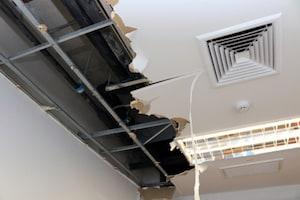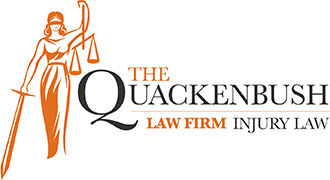West Palm Beach Defective Property Condition Attorney
This West Palm Beach Defective Property Condition Attorney Gets Compensation for People Injured by Hazards

If you’ve been hurt due to a hazard, contact this West Palm Beach Defective Property Condition Lawyer today. If you go on the property of another person or entity due to a hazardous condition, then you may be able to pursue a case against the other person or entity. This is because a property owner is obligated to keep his or her property safe. If the property owner doesn’t do this, then he or she will be liable for any injuries that result.
Dangerous property conditions may include:
- liquid/fluid (water, soda, juice, coffee, beer, etc.) on the floor/ground of a property.
- physical objects lying on the floor/ground of a property.
- Overly “slick” or slippery flooring may also cause slip and fall accidents.
- structural defects on the property (including steps on stairs of improper heights, stairs or steps without handrails, and slanted flooring)
- Improper, poor, inadequate, defective or lack of lighting
- Painted floors
- “Step-downs” or changes in elevation
- walls that aren’t structurally sound
- Defective walls that fail to stop the spread of carbon monoxide
- Leaking roofs or ceilings
- Roofs or ceilings that collapse or fall on people
- Holes in grounds and defective flooring
If your accident was caused by a fixture (i.e., a permanent, not temporary, condition), then Mr. Quackenbush may hire a building code expert to evaluate the condition. The expert may attempt to determine if the property was built up to code. For example, the expert may use the “Florida Building Code” and the “Life Safety Code” to determine if the property was built up to code. If the expert determines that the property was not, in fact, built up to code, then he or she may testify to that fact in court.
Should you be hurt by a dangerous property condition anywhere in Florida (including Miami-Dade County, Miami, Broward County, and Fort Lauderdale), contact Mr. Quackenbush. You can receive compensation for your injuries with the help of this West Palm Beach Defective Property Condition Law Firm. Mr. Quackenbush will discuss your case at no charge to you.
Fairness the Goal of this West Palm Beach Defective Property Condition Lawyer
If your accident/injury was caused by a fixture/structural defect, the property owner may argue that the “Slavin Doctrine” relieves it of responsibility. The Slavin Doctrine states that, if a contractor constructs/builds a property or structure and turns it over to a property owner, then the owner will not be responsible for any “latent” (i.e., hidden) defects. After all, if a defect is hidden, there would be no way for the property owner to know about it. In that case, it will be the contractor that constructed/built the property that will be responsible for any accidents/injuries caused.
On the other hand, if the defect was “patent” (i.e., obvious), then the property owner will be responsible (and the contractor that build the property will be relieved of liability). After all, if the dangerous condition was obvious, then it could easily be argued that the property owner should have known about it. Therefore, the question of who will be responsible will depend on the nature of the defective condition. If the condition was patent, then the property owner will be responsible; if it is latent, then it will be the contractor that constructed/built the property that will be liable.
Additionally, if the dangerous condition that caused your accident/injury was a fixture/something permanent in a business establishment, restaurant or store, then it may be the landlord (and not the business tenant) that is held responsible. This is because the lease between the landlord and tenant may say that it is the landlord who has the obligation to repair fixtures or structural defects. The tenant may have no right to make such changes to the property, and therefore couldn’t fairly be held responsible for any accidents/injuries caused.
If your accident was caused by a transitory (i.e., not permanent) dangerous condition, then you will need to prove that the property owner had “notice” of the condition. That is, in order to prevail in your case, you will need to prove that the property either 1) knew of the dangerous condition (i.e., had “actual notice”) or 2) should have known of it (i.e., had “constructive notice”).
This South Florida Dangerous Property Condition Attorney/Lawyer Counsels Clients who Need Help
In order to prove that the property owner had actual notice, you can prove that the owner (or an employee) either a) created the dangerous condition or b) knew of it and failed to do anything to correct it. This can be done using either testimonial evidence (i.e., testimony of witnesses) or physical evidence (e.g., incident reports, etc.).
On the other hand, in order to prove that the property owner had constructive notice, you will need to prove that the condition existed for long enough that the owner should have known of it. You can prove that the condition existed for long enough using circumstantial evidence. For example, if you slip and fall on water in a store, you can show that the water was there for a while if it had dirt in it, tracks in it, etc.
If you’ve been injured on the property of another person or entity due to a defective property condition, the defense may argue that you are “comparatively negligent.” That is, the defense may argue that you were at least in part responsible for your own accident/injuries. The defense may be able to do this if it can prove that the dangerous condition was “open and obvious.” That is, if the dangerous condition is obvious, then you should avoid it. If you don’t and you are injured as a result, then you will be responsible for the consequences.
If the jury in your case agrees, then it will be asked to divide up percentages of fault. For example, the jury could say that you are 50 percent responsible, and the defendant 50 percent responsible also. Or the jury could divide up the percentages of fault 90/10, etc. In the end, your recovery will be reduced by your percentage of fault. For example, if you are awarded $100,000 but you have 10% fault, then you will only receive $90,000.
To Speak to this Palm Beach County Defective Property Condition Law Firm, Dial 954-448-7288
To discuss your case for free, call 954-448-7288 if you’ve been hurt anywhere in Palm Beach County (including Belle Glade, Boca Raton, Boynton Beach, Delray Beach, Greenacres, Jupiter, Lake Worth, Lantana, North Palm Beach, Palm Beach Gardens, Palm Springs, Riviera Beach, Royal Palm Beach and Wellington). Mr. Quackenbush will talk to you about your case for free.













